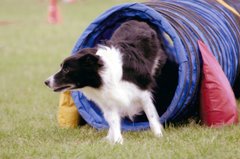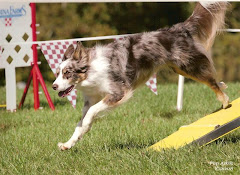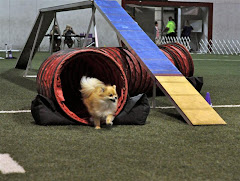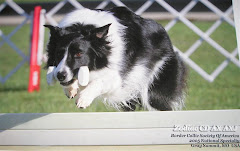More commonly known as "kennel cough" this is a very common infectious respiratory condition of dogs. As the name implies, the disease is most commonly picked up in boarding kennels, shelters, etc-where large groups of dogs are housed together in close quarters. Kennel cough is spread in respiratory secretions which become aerosolized and are then inhaled by other dogs. Kennel cough organisms can be eradicated by evacuating the premises for 1-2 weeks and using routine disinfection.
The hallmark sign of kennel cough (as you might imagine) is a dry hacking cough, sometimes coughing to the point of bringing up small amounts of mucus or phlegm. The cough is often so characteristic you can almost make the diagnosis with the dog still in the lobby! Upon exam a dog with kennel cough will typically have normal heart and lung sounds but will frequently cough when pressure is applied to the trachea (windpipe). In uncomplicated cases cough remains the only symptom but some cases will develop nasal discharge or pneumonia and subsequent lethargy, anorexia or fever.
Kennel cough is caused by several infectious agents. The bacteria, Bordetella bronchiseptica, is the primary agent in kennel cough. It can be accompanied by canine adenovirus type 2, parainfluenza virus, and canine distemper virus. The incubation period is 2-14 days and dogs can shed Bordetella for up to three months post infection.
Most cases of kennel cough will get better on their own. However many of these dogs are coughing so much that they require cough suppressants to make them more comfortable and allow them (and their owners) to get some sleep! Antibiotics can also be prescribed to try and limit the portion of the disease caused by Bordetella. Doxycycline is usually the antibiotic of choice. Although the textbooks will say that dogs should recovered in 10-14 days, I have seen many dogs who cough for 3-4 weeks.
Vaccination and prevention is complicated by the number of agents involved in the disease. Parainfluenza is considered a non-core vaccine and is only available in combination with other vaccines. Therefore your dog may or may not receive this vaccine depending on which products your vet uses. Boosters are administered as per the recommendation for whichever other disease that particular vaccine product is for. Adenovirus type 2 is also typically found in combination with the other previously mentioned viral diseases. Similarly, puppies are vaccinated every 3-4 weeks until 16 weeks of age then one year later. After that boosters are given every 3 years or at whatever interval you and your vet decide on. There are some studies showing this vaccine to be protective for up to 7 years.
Bordetella bronchispetica vaccines come as an intranasal, injectable, and now an oral form. The injectable form requires a second dose 2-4 weeks after the first to be effective and is then boostered annually. The second dose should be administered at least a week before boarding, etc. The intranasal form requires only one initial dose and immunity typically lasts 10-12 months. The advantage to the intranasal is that it stimulates immunity in the exact site where the infection takes hold. It also stimulates immunity in about 4 days, rather than one week. Some boarding kennels require a vaccine every 6 months. I do not have a lot of information on the oral vaccine. This is considered a non-core vaccine and is only recommended to dogs "at risk."
However, I have seen dogs that never leave the yard contract "kennel cough." Doesn't mean they didn't have contact with other dogs, but technically they were not in high risk situations. On the flip side I have seen fully vaccinated dogs who make an unfortunate trip to the pound come down with kennel cough. This leads me to believe that either other agents are playing a part and/or the vaccines for this disease are not as good as for some of the others. Probably both. That said, I do vaccinate my dogs for this-not necessarily because we go to agility trials (those dogs are generally healthy) but because we may have a foster or transport dog that has come from a shelter. And many of the shelters here have kennel cough running rampant.
The Big Number 3
1 week ago


.jpg)
.jpg)



.jpg)



2 comments:
The first time I experienced Kennel Cough was with my Boxer mix. Once you've seen and heard that cough, you'll recognize it when you meet it again.She stood to sleep with her head resting on a chair because to lie down was to cough uncontrollably.
Thanks for writing this. As a dog daycare owner, it is a vaccine that we currently require, yet I constantly debate whether or not we should. It is so hard to find decent, factual information about the illness and the vaccine's effectiveness.
When dealing with non life threatening risks of daycare (i.e. fleas, etc.) we try and inform owners of the risks and hope that they make educated decisions on precautions they can take based on what they are most comfortable with and with what they deem to be best for their individual dog and their lifestyle.
Kennel Cough is one of those risks that I'm on the fence for but I realize that it could be very hard for us to eliminate were it to start spreading.
Post a Comment